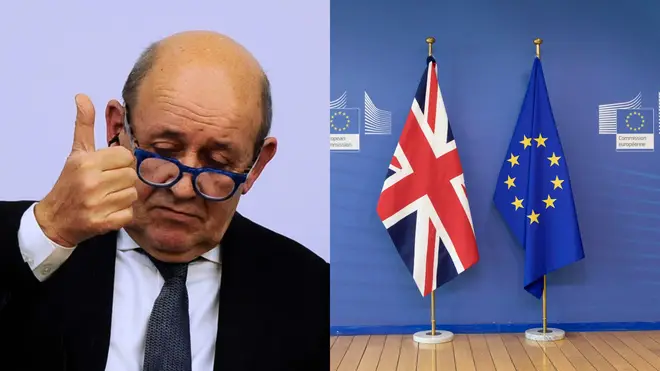
James O'Brien 10am - 1pm
17 February 2020, 05:25

Britain has been warned to expect a battle in upcoming negotiations with the EU on a post-Brexit trade deal.
France has warned that Brussels will defend its interests when negotiations begin next month.
The country's foreign minister Jean-Yves le Drian predicted the two sides would "rip each other apart" as they strove for advantage in the talks.
Speaking at the annual Munich Security Conference, he made clear
"I think that on trade issues and the mechanism for future relations, which we are going to start on, we are going to rip each other apart," he said.
"But that is part of negotiations, everyone will defend their own interests."
The British government's chief trade negotiator David Frost is set to outline Boris Johnson's vision for the UK's future relationship with the EU in a lecture, his first public intervention, on Monday evening in Brussels.
Mr le Drian, a close ally of President Emmanuel Macron, is the latest senior EU figure to warn that the negotiations will be difficult.
European Commission president Ursula von der Leyen and chief negotiator Michel Barnier have both cast doubt on Boris Johnson's aim to reach a comprehensive agreement by the end of the year when the Brexit transition period runs out.
The EU has repeatedly warned Britain cannot expect to enjoy continued "high quality" market access if it insists on diverging from EU social and environmental standards.
There is expected to be a particularly tough fight over fishing rights, with the EU insisting continued access to UK waters must form part of any agreement.
Mr Johnson, in turn, has said the UK will act as an "independent coastal state" taking control of its own fisheries.
Downing Street hit back at the comments, insisting that “friendly co-operation” was possible. A No 10 spokesman said that Britain was “not asking for anything special, bespoke or unique” and would set out demands for a “deal like the EU has struck previously with other friendly countries like Canada”.